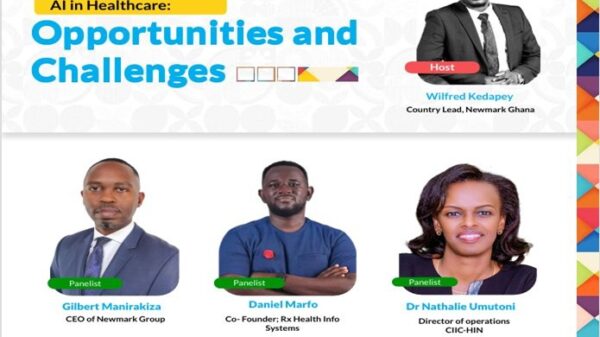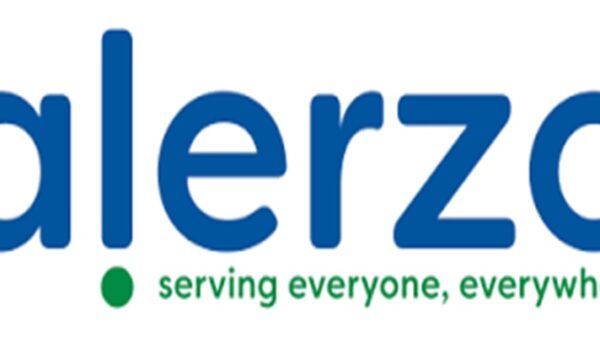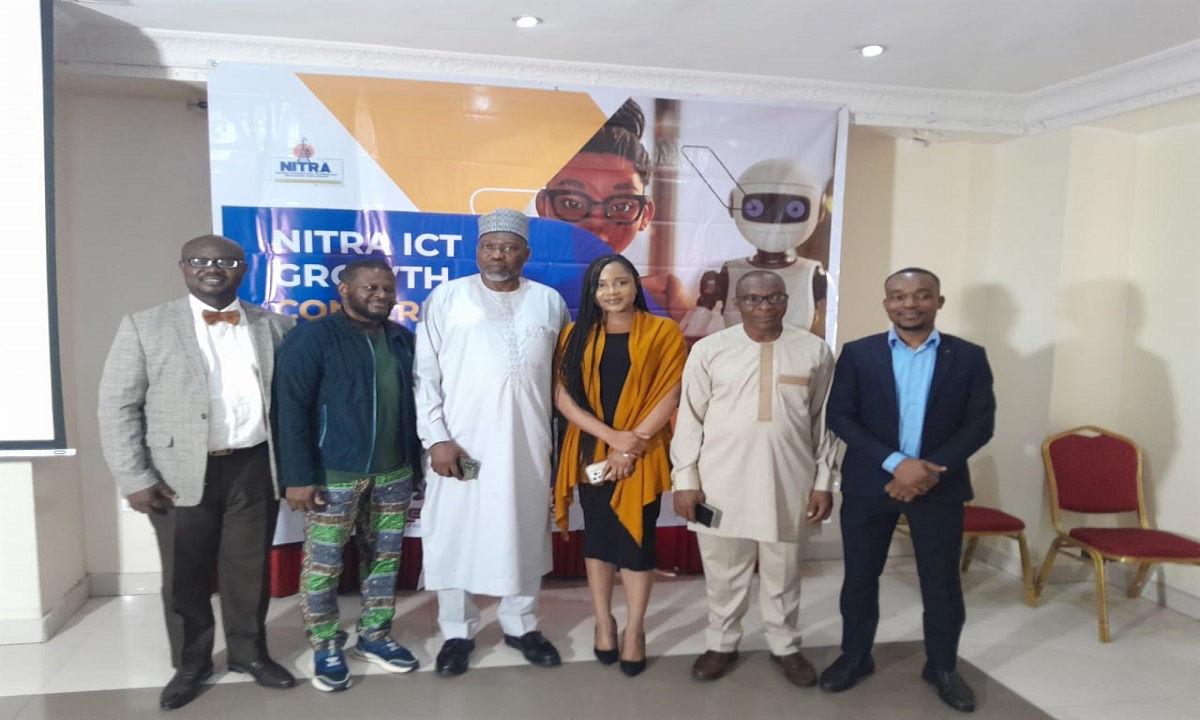Prof. Obadare Peter Adewale, Founder and CVO of Digital Encode, represented by Oluwakayode O. Olatunji, CISO and Group Head of InfoSec & GRC Advisory, emphasized the need for Nigeria to understand the threat landscape and the critical role of cybersecurity in protecting against these threats.
Ravenewsonline reports that the emphasis is essential for driving sub-sectoral digital growth through Artificial Intelligence (AI).
In his presentation at the one-day ICT Growth Conference organized by the Nigeria Information Technology Reporters’ Association (NITRA) at the Citi Height Hotel, Lagos, he noted that many African countries lag behind in cybersecurity.
Read Also: Dr. Obadare Peter Adewale Appointed Professor of Practice at Miva Open University
Even in Nigeria, the financial sector has been at the forefront of leveraging AI and cybersecurity, contributing about 25%-30% of AI involvement based on local statistics.
He highlighted the potential of AI across various sectors, including finance, health, energy, transportation, defense, medical, and agriculture.
He underscored AI’s ability to predict productivity and its diverse benefits but quickly cautioned against the dangers of AI misuse, stemming from issues such as bias and fairness, inadequate transparency, security vulnerabilities, data privacy concerns, and ethical and moral dilemmas.
The cybersecurity expert discussed the use of AI in threat landscape profiling, crime detection and prevention, and reporting capabilities.
He stressed the importance of responsible AI usage and the need for continued investment in AI and cybersecurity.
Identifying AI Governance, Architecture, Implementation, Operations, and Monitoring (GAIOM) as key elements for effective cybersecurity strategies in responsible AI development, he emphasized the importance of AI architecture, including business and data architecture, technology-infrastructure architecture and the necessity of a security architecture which includes cybersecurity and data privacy protection respectively.
Data protection and privacy are crucial components of AI implementation. The process of implementing AI, from setting goals to security monitoring, is vital.
The role of education and investment in education for driving AI adoption and economic growth cannot be overemphasized.
To fully realize the impact of AI on national development, he advocated for explicitly defined governance objectives, an AI ethical framework, an interdisciplinary approach, robust local content data management, all-inclusive regulatory compliance, tailored best practice risk assessment and mitigation, transparency and explainability, sustained human capacity development, and robust processes to address AI implementation challenges.
He also argued that monitoring AI usage and ensuring its alignment with set goals during the implementation process is critical.
In addition, he called for increased public sector and government investment in education to drive AI adoption and economic growth, noting that the role of education in providing the necessary skills and knowledge for AI implementation cannot be ignored.
He introduced the concept of “knowledge banking,” where knowledge can be monetized to address various economic sectors.
He pointed out that in countries using AI to drive their economies, education is a fundamental prerequisite, and positively disruptive education leads to the needed transformation by developing tailored skill sets.
“When we examine this, it becomes evident that many challenges we face in this part of the world will become easier to address.
“As a country, we have the potential to be a leading light in the knowledge economy because Nigeria is blessed with brilliant men and women,” he said.
Prof. Obadare, who was recently appointed a Professor of Practice by MIVA Open University, Abuja, also proposed a disruption of the educational sector to improve data quality.
He emphasized that relying too heavily on outsourced data libraries can lead to AI biases and stressed the importance of maintaining excellent data quality as a local content treasure.
“To address this, we need to disrupt the educational sector, particularly from primary to tertiary institutions, to focus more on institutional or research-based education.
Read Also: Dr Obadare Adewale, Emerges Forbes Best of Africa Outstanding Digital Trust Leader 2023
“For example, during the COVID-19 pandemic, much of the global data was sourced from Johns Hopkins Hospital research center, indicating the importance of local research centers.
“We should encourage partnerships with the private and public sectors to create local content hubs, which would attract global tech companies like Meta and Google to invest in our ingenuity.
“Our tertiary education sector should be research-oriented and local content-focused to improve data quality and upskill the workforce, adapting to the challenge of training AI rather than traditional skills,” he concluded.
![]()




























































